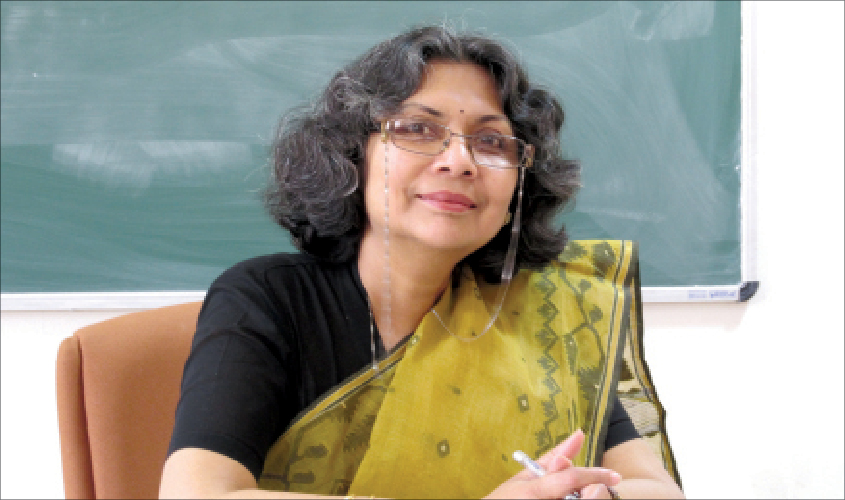Author Neelum Saran Gour’s latest novel, Requiem in Raga Janki, tells the life story of the obscure but talented Hindustani classical musician, Jankibai of Allahabad. She speaks to Latha Srinivasan.
Jankibai of Allahabad was one of the most influential Hindustani classical singers to emerge from north India at the turn of the 19th century. She was among the early talents of the gramophone era, and numerous records of her songs were made by labels like Pathephone and GLT. Author Neelum Saran Gour tells this renowned singer’s story in her new novel, Requiem in Raga Janki. In an exclusive chat with Guardian 20, Gour talks about how Jankibai survived a horrendous knife attack and went on to become a legend of Hindustani classical music.
Q. Why did you choose to write a book on Jankibai Ilahabadhi?
A. I was drawn to the shadowy rumour that her name has sunk to, over the last hundred years, the faded legend of someone who had been forgotten in her own city, despite the iconic position she’d acquired at the peak of her powers. I like writing about my city, Allahabad, which I share with Jankibai. I stumbled across her story more than a decade ago, while researching for another project and I was struck by her human presence, her humble origins, her persistence, her entrapment—I would only call it that—in a kotha, and the way she overcame her situation and soared beyond it to stellar heights. Also, even in her lost story, so scantily preserved, there was enough to suggest an unquiet life of vexation and pain that somehow ran parallel to her alter-existence in art. It was the person behind the persona that attracted me.
Q. “Chhappan chhurivali” was the nickname that followed her everywhere. How much did the stabbing incident she was involved in change her life?
A. “Chhappan chhuri” was the nickname others had given her and it seems to suggest the very opposite of what it actually was. We tend to associate the name with someone armed with lethal weapons—beauty, power, formidable confidence. In reality, Janki had none of these when she started out. She was the victim of a violent attack. Her assailant attempted to stab her to death, and she was very young then, almost a child. The reasons for the attack are clouded in mystery but there are various theories based on surviving evidence. The attack left her scarred for life, just as acid-attack victims are. But she lived with the scars, even wore her disfigurement with pride in a field where a woman performer was expected to look alluring on the stage.

Q. Has Hindustani classical music been influenced by her? If so, how?
A. The kothas were rich repositories of Hindustani classical music in Janki’s time but due to the activity of a certain kind of misplaced moral policing on the part of powerful music lobbies, they were discredited and went into steep decline. Their legacy, if it can be called that, survived as a thin, residual trickle of a great tradition. Janki left no specific personal legacy. Only recently has there been a revival of interest in the lost treasures of that era that can be salvaged by aficionados.
Q. She grew up in a brothel, which you have written extensively about. She was also plain-looking. Was music and singing her way of reaching out to the outside world? Of being celebrated? Of reinforcing her faith?
A. Janki was not born in a kotha. She found herself in one by a train of odd events which the novel traces. And yes, Janki was plain-looking. No glamour about her despite the opulence of her costumes and jewellery in her later affluent phase. And she was scarred. She wasn’t star material. She was just a real artist, the genuine article. She had an intense relationship with her music and she believed that, come what may, the authentic artist in her would overrule the stereotypical expectations of audiences. That’s what happened.
Q. Jankibai seemed to be totally in awe of the singer Gauhar Jaan, even though Gauhar considered herself far superior to Jankibai.
A. It was Gauhar who was star material—cosmopolitan, glamorous, a diva. Theirs was a delicate equation. Gauhar was charming, patronising; Janki awestruck, often crestfallen. A complex but common situation.
Q. Jankibai composed music as well. What incidents in her life influenced her compositions?
A. Janki wrote a “Deewan” of verses, parts of which I have translated in the novel. For the artist-courtesan, writing poetry wasn’t anything extraordinary. Most high-class tawaifs dabbled in verse. But if one explores the entire corpus of Janki’s poetry, one finds three dominant triggers: her voluntary conversion to Islam; the ups and downs of her troubled relationship with her lover, and later husband, Abdul Haq; and her friendship with her mentor, the famous Urdu poet Akbar Allahabadi.

